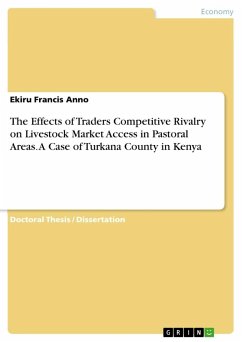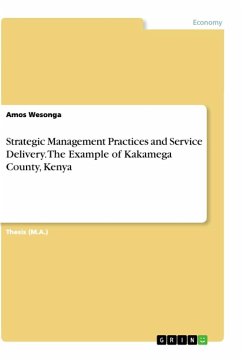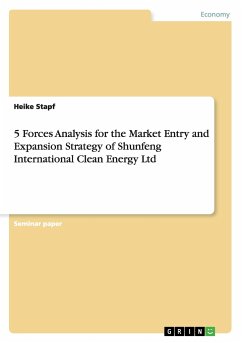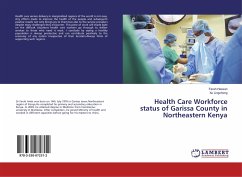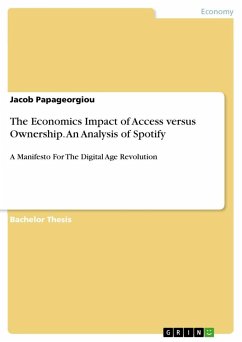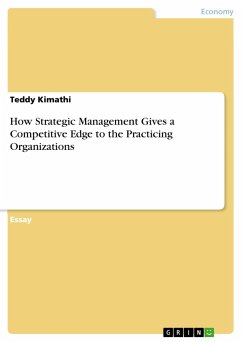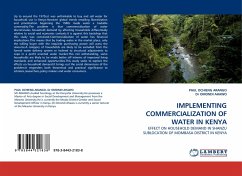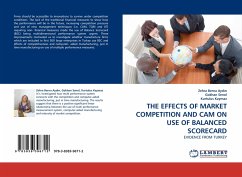Doctoral Thesis / Dissertation from the year 2022 in the subject Business economics - Market research, grade: Overall CPA 3.93., , course: Marketing Management, language: English, abstract: The purpose of the study was to examine the effects of livestock traders' competitive rivalry on market access in pastoral areas. The study focused on how traders' socioeconomic characteristics, livestock production and marketing developments, market supply and demand relations, and business model incorporation into livestock commerce can generate knowledge and best practices for regulating competition and performance in local markets. The rationale for investigating competition and market access factors was based on the fact that livestock-keeping is a source of livelihood depended on by over 60% of the Turkana population. While the majority of livestock development challenges are production-related, competition and market access shortfalls make potential livestock markets inefficient and non-lucrative. Exploratory and descriptive research designs and a mixed-methods research approach were used to structure the study. Data was collected from study populations, i.e., primary market traders (n = 243), secondary market traders (n = 168), and livestock specialists working for the government and civil society (n = 24). T Knowledge generated on livestock production and marketing in pastoral areas for use by government and civil society in effective programming of livestock developments in pastoral areas is the basis for the study's critical implications for theory and practice. To structure, enhance performance, and regulate competition in livestock markets, the study underscores the importance of formulating and implementing business models and strategies leading to the most organized livestock marketing and networking among market stakeholders. The study's findings will guide the development of the livestock sector in drylands, facilitate the creation of value-added product chains for the market, manage pricing, structure market governance, and facilitate market support networks.
Hinweis: Dieser Artikel kann nur an eine deutsche Lieferadresse ausgeliefert werden.
Hinweis: Dieser Artikel kann nur an eine deutsche Lieferadresse ausgeliefert werden.

